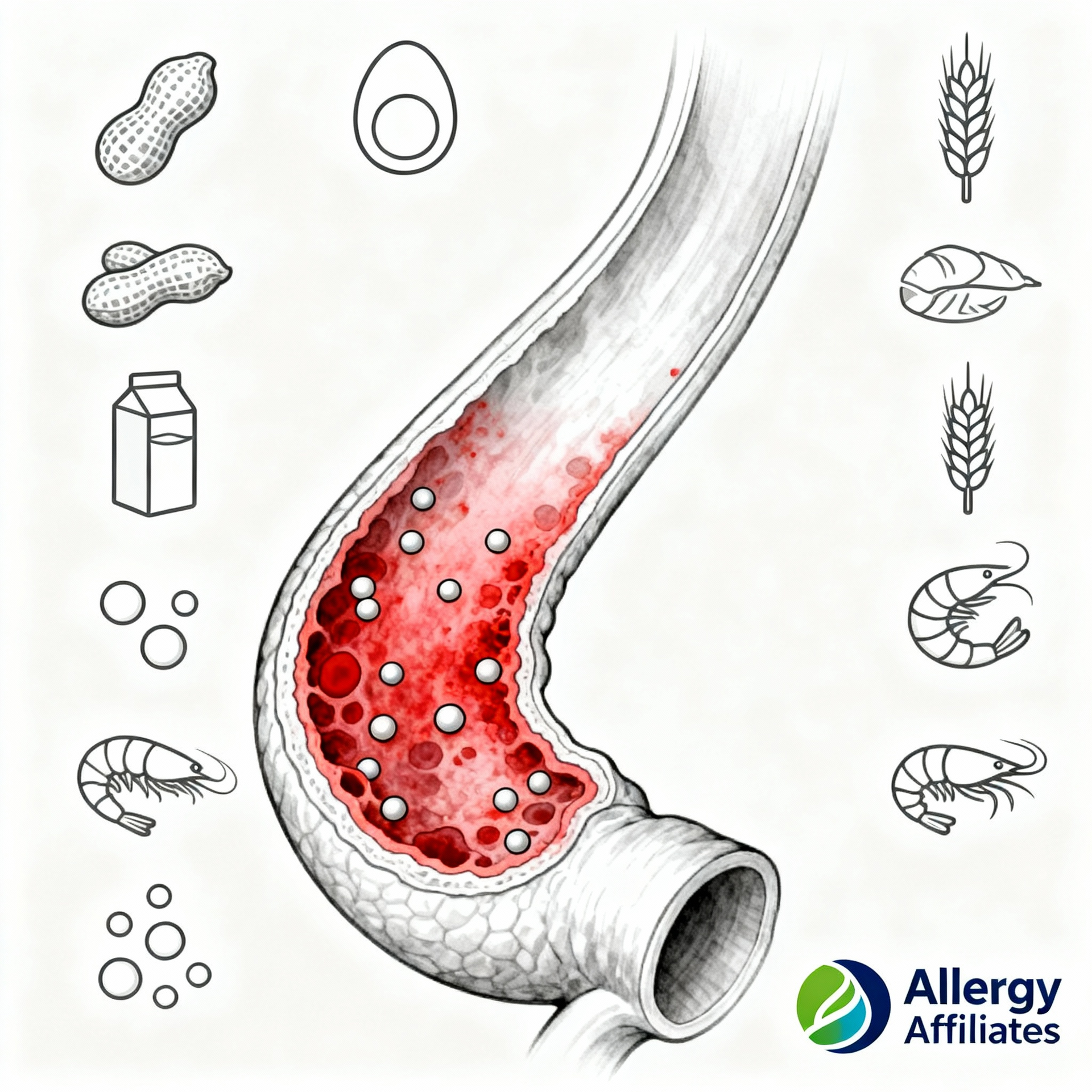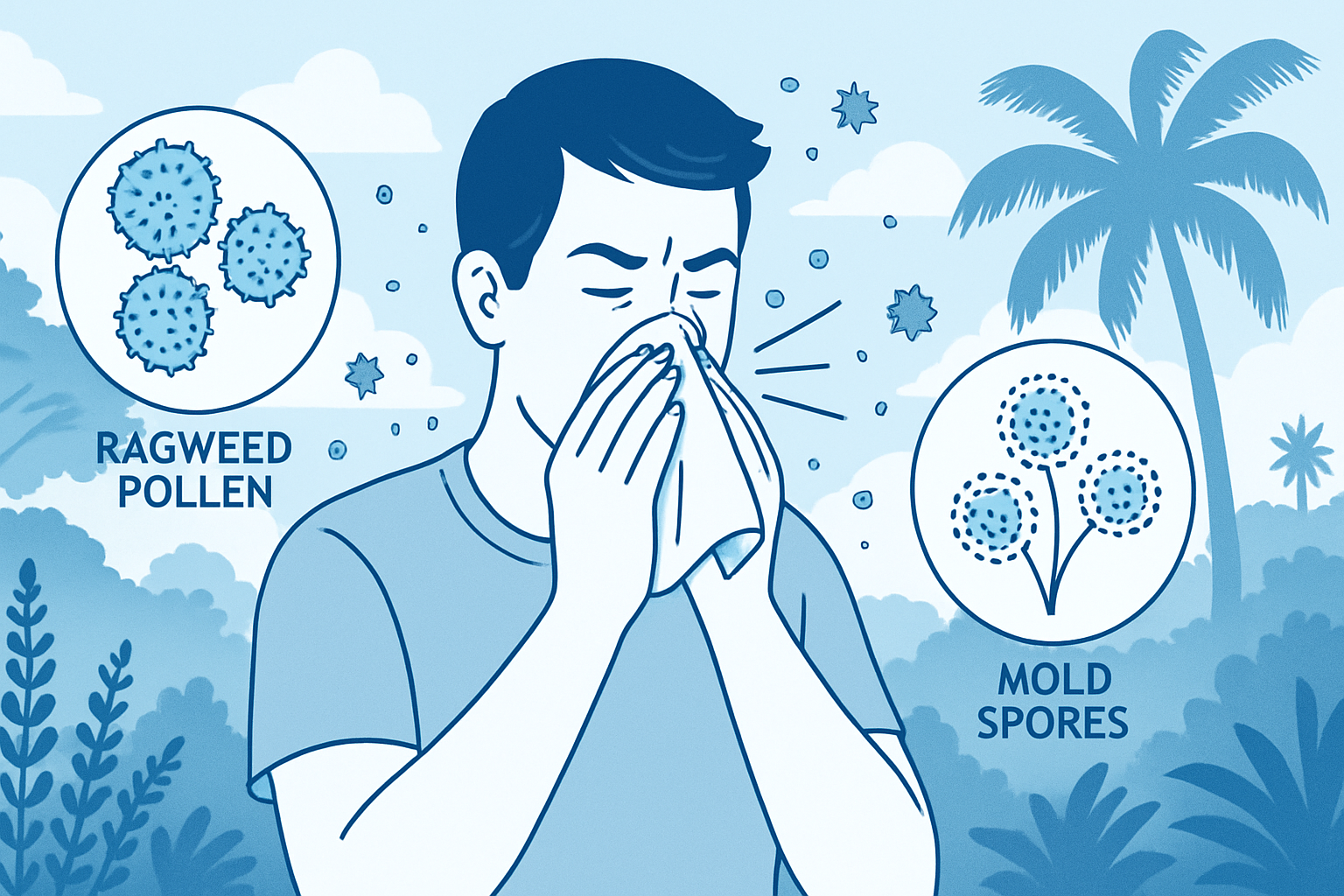
Chronic cough, characterized by a cough lasting more than eight weeks in adults or four weeks in children, can significantly diminish one's quality of life. Whether caused by asthma, gastroesophageal reflux disease (GERD), postnasal drip, or other medical conditions, finding relief can be challenging. Many seek solutions beyond conventional medicine, exploring natural remedies to ease their persistent symptoms. This blog aims to explore these natural approaches, along with expert advice, to help you manage and treat chronic cough effectively.
Natural Remedies for Chronic Cough: From Home Solutions to Expert Advice
Understanding Chronic Cough
A chronic cough is a persistent cough lasting more than eight weeks in adults and four weeks in children. While coughing helps clear irritants and secretions from the lungs, a chronic cough can have negative impacts on your overall quality of life. It can be disruptive, exhausting, and sometimes embarrassing, making it crucial to understand its underlying causes and potential treatments.
Common Causes of Chronic Cough
Chronic cough can result from several conditions and factors, often indicating a more severe underlying health issue. Some common causes include:
- Post-Nasal Drip (Upper Airway Cough Syndrome): Often a result of allergies or sinus infections, it causes mucus to trickle down the throat, triggering a cough.
- Asthma: Usually associated with wheezing and shortness of breath, cough-variant asthma can manifest predominantly as a chronic cough.
- Gastroesophageal Reflux Disease (GERD): Acid from the stomach can irritate the throat, leading to a persistent cough.
- Chronic Bronchitis: Often caused by smoking, this condition is characterized by a long-term productive cough.
- ACE Inhibitors: Medications for high blood pressure can induce a cough in some individuals.
- Environmental Pollutants: Long-term exposure to environmental irritants, such as tobacco smoke, can also lead to chronic coughing.
When to Seek Medical Advice
While occasional coughing is normal, it is essential to consult a healthcare professional when experiencing persistent symptoms. You should seek medical advice if:
- Your cough lasts more than three weeks.
- You experience associated symptoms such as fever, weight loss, or shortness of breath.
- You cough up blood or discolored phlegm.
- There's a noticeable change in your voice or if breathing is painful.
- You have a chronic medical condition, such as asthma or GERD, and your symptoms worsen.
Benefits of Natural Remedies
For those looking for alternatives or complements to conventional treatments, natural remedies can offer relief from chronic coughing. The benefits of natural remedies include:
- Fewer Side Effects: Many natural remedies are less likely to cause adverse reactions compared to pharmaceutical options.
- Cost-Effectiveness: Herbal and home-based remedies are often more affordable.
- Accessibility: Natural remedies can often be prepared using ingredients commonly found at home.
Home Remedies for Chronic Cough
Natural remedies provide an array of options for alleviating the symptoms of a chronic cough. With a combination of herbs, dietary adjustments, and lifestyle changes, individuals can find relief and improve their quality of life.
Herbal Teas and Natural Ingredients
Herbal teas and natural ingredients are effective in soothing an irritated throat and reducing coughing:
- Honey: Known for its demulcent properties, honey can coat the throat, reducing irritation. Mixing honey with warm water or herbal tea can provide relief.
- Ginger: With anti-inflammatory properties, ginger can help relax membranes in the airways, alleviating cough. It can be consumed as ginger tea or added to recipes.
- Thyme: This herb is often used to treat respiratory illnesses. Thyme tea, made by steeping the herb in hot water, can relieve cough.
- Peppermint: Peppermint leaves contain menthol, which soothes the throat and acts as a decongestant. Peppermint tea or inhaling menthol vapors can help reduce symptoms.
Humidifiers and Breathing Exercises
Moist air can ease breathing and reduce cough intensity. Consider incorporating the following into your daily routine:
- Humidifiers: Using a humidifier in your home or office can add moisture to the air, preventing dryness in the throat that can exacerbate coughing.
- Steam Inhalation: Inhaling steam from a bowl of hot water can help clear nasal passages and reduce throat irritation.
- Breathing Exercises: Techniques such as diaphragmatic breathing can improve lung capacity and reduce coughing fits. Practicing yoga or mindfulness meditation can also promote relaxation and help manage chronic cough symptoms.
Dietary Changes and Lifestyle Adjustments
Revisiting diet and lifestyle choices can play an essential role in managing a chronic cough:
- Hydration: Drinking plenty of water keeps the mucous membranes hydrated and less prone to irritation.
- Avoid Triggers: Identifying and avoiding foods or substances that trigger reflux or allergic reactions can reduce cough frequency.
- Quit Smoking: If you smoke, quitting is the most beneficial step you can take to reduce chronic coughing.
- Moderate Exercise: Regular, moderate physical activity can enhance respiratory health and immunity, helping to stave off respiratory infections that may cause a chronic cough.
In conclusion, while chronic cough can significantly impact one's daily life, a variety of natural remedies can offer substantial relief. Herbal teas, humidifiers, breathing exercises, and dietary changes serve as effective solutions to reduce cough symptoms and enhance overall well-being. However, it is equally important to seek professional medical advice to ascertain the cause of the cough and determine the most appropriate treatment. With the right combination of natural remedies and medical guidance, individuals can improve their quality of life and reduce the burden of chronic coughs.
Expert Advice on Managing Chronic Cough
When it comes to managing a chronic cough, expert advice can illuminate the path toward relief. Chronic coughing, which is defined as a cough lasting more than eight weeks, can be both bothersome and disruptive. Understanding how healthcare professionals approach this condition provides valuable insights for those seeking to regain comfort and well-being.
Insights from Healthcare Professionals
Healthcare professionals emphasize the importance of identifying the underlying cause of a chronic cough. This approach ensures that the treatment is not just addressing symptoms, but is also targeting the root issue. A thorough examination, which may include a chest X-ray, spirometry test, or allergy testing, often guides a proper diagnosis.
- Postnasal Drip: Professionals may suggest antihistamines or nasal sprays to manage a cough due to postnasal drip.
- Asthma: In cases of cough variant asthma, inhalers and other bronchodilators can offer effective relief.
- Gastroesophageal Reflux Disease (GERD): For coughs stemming from GERD, dietary changes combined with medications, such as proton pump inhibitors, are recommended.
- Medications: When a chronic cough is medication-induced, healthcare providers might alter prescriptions, especially if ACE inhibitors are a potential cause.
It's crucial for patients to maintain open communication with their healthcare providers, allowing for adjustments in treatment as necessary.
Importance of Consistency in Treatment
Consistency is pivotal when managing a chronic cough. Following a structured treatment plan as prescribed by a healthcare professional can prevent the worsening of symptoms. Regular monitoring and adherence to medication schedules help in managing the condition effectively. For those relying on natural remedies, consistency in the use of these solutions is equally important.
Creating a routine for humidification, hydration, and home remedies such as honey or ginger tea can complement prescribed treatments. These natural practices should be incorporated into daily life to fully realize their benefits.
- Hydration: Sufficient fluid intake is essential in keeping mucus thin and easier to expel.
- Humidity: Using a humidifier can prevent the airways from drying out, thus reducing irritation.
- Rest: Adequate rest allows the body to heal and repair, contributing significantly to the management of a cough.
Combining Conventional and Natural Approaches
Embracing a holistic strategy by combining conventional and natural approaches can maximize relief. While prescribed medications tackle specific physiological triggers, natural remedies can support overall respiratory health.
Professionals might recommend pairing lifestyle changes with medical treatments. For example, regular exercise can improve lung function, while a balanced diet can enhance the immune system. Both factors may influence the frequency and severity of chronic coughs.
Incorporating natural remedies like herbal teas, steam inhalation, and essential oils may provide additional comfort while using medications actively engaged in addressing the underlying causes. Collaborating with healthcare providers to establish a balanced plan ensures that the benefits of each approach are optimized.
In summary, applying expert guidance in managing chronic cough involves a combination of identifying the cause, maintaining consistency, and integrating both conventional and natural methods. This collaborative effort between patient and provider is key to achieving meaningful and lasting relief.
Conclusion
Dealing with a chronic cough can be challenging, but understanding its underlying causes and exploring natural remedies can offer significant relief. Herbal teas, honey, ginger, and steam inhalation are accessible ways to manage symptoms at home. However, if your symptoms persist, seeking professional guidance is crucial for a thorough evaluation and treatment plan. Remember, while natural remedies can be beneficial, they are most effective when combined with expert advice tailored to your specific needs. Prioritize your health by knowing when to seek expert intervention.

New Paragraph










